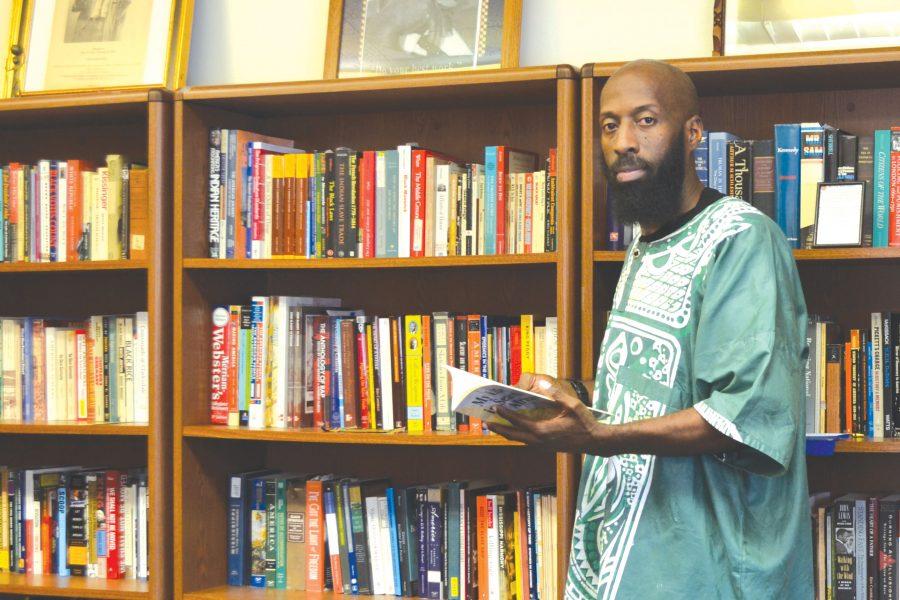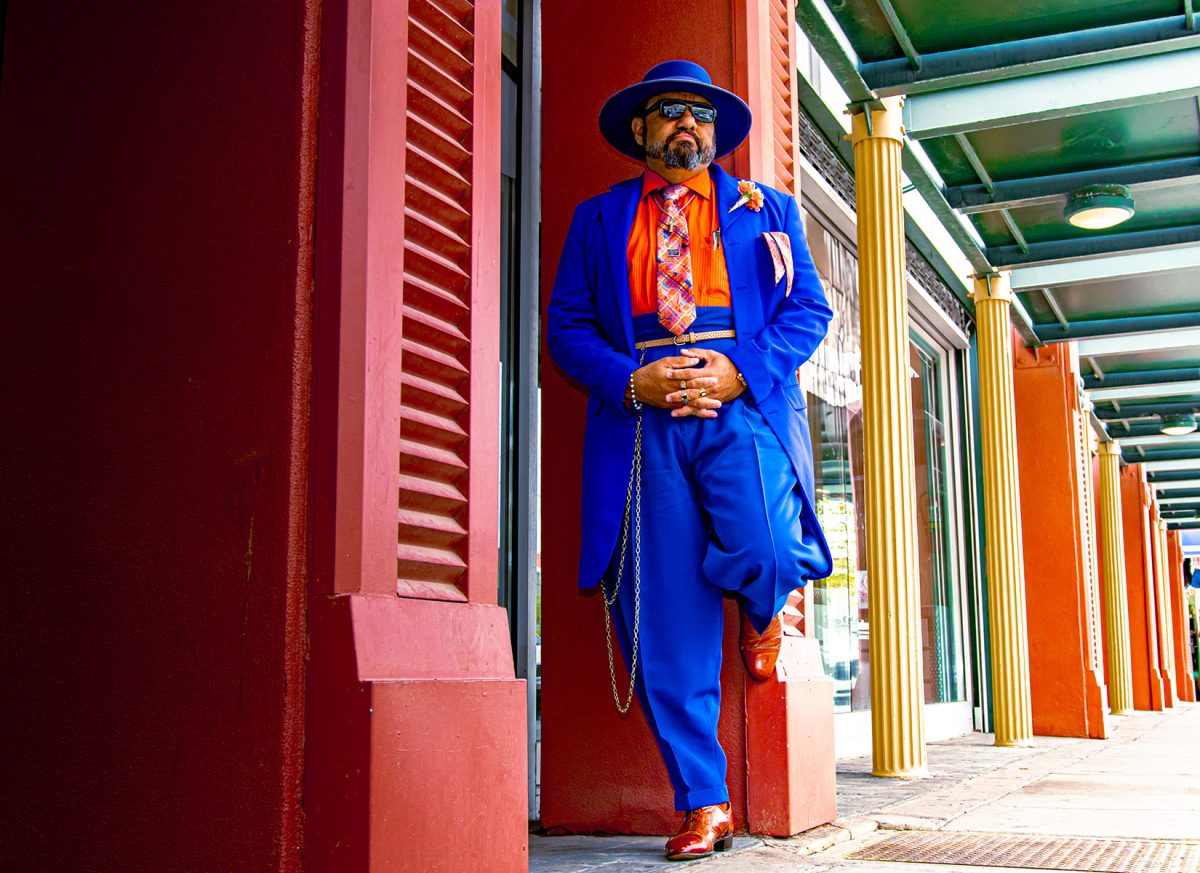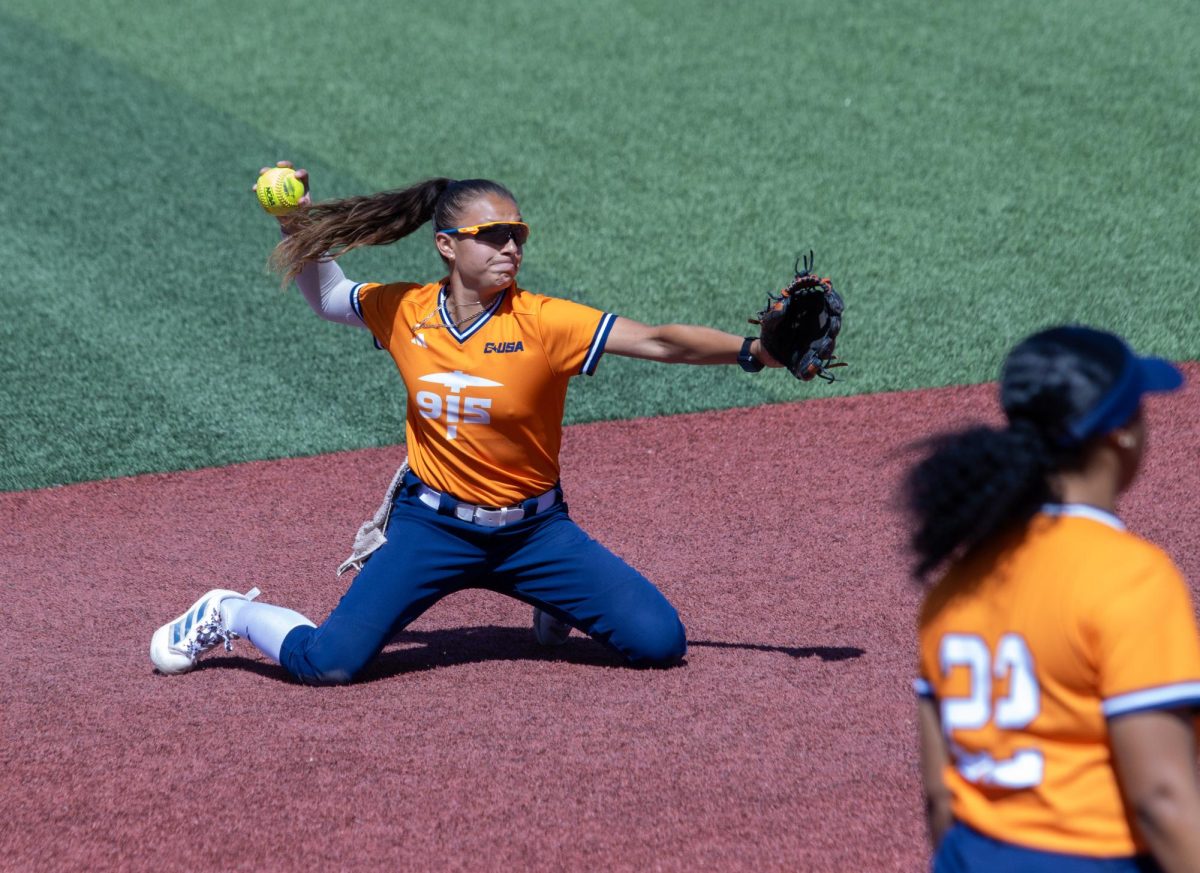When Maceo Dailey passed away in October 2015, he left a hole not only in the El Paso community but in the African-American Studies Program at UTEP. The new director, Michael Williams, not only seeks to preserve Dailey’s legacy, but to expand on that legacy and create a communal bond between the program, UTEP and the surrounding community.
“My objective is to make sure African American studies is in a position in which it is actually training up the next generation of students, who will go out and become leaders in their individual communities,” Williams said.
Williams, who has a doctorate in history, comes to UTEP from Tougaloo College in Jackson, Mississippi, where he was the dean of social sciences, holder of the Bennie Gordon Thompson Endowed Chair in the Social Sciences and an associate professor in history.
While Williams is a 20th-century historian, he specializes in the civil rights struggle, black intellectual radicalism, grassroots activism and other topics relating to civil rights activism.
His interest in civil rights came from his parents, who were involved in community activism. Williams grew up hearing the names and words of Malcolm X, Martin Luther King Jr., Marcus Garvey, Medgar Evers and Ella Baker, and his schooling was an educational expansion of the values he was taught at home.
Through his parents, his education and his own experiences, Williams became an advocate for universities that use their services to fit the needs of the community.
“I’m a very strong proponent that there has to be a link between the academy and the community that the academy was designed to serve,” Williams said.
At Tougaloo College, Williams was involved in outreach programs with community organizations on matters they thought were important such as voting issues, and would often be a keynote speaker, offering his knowledge about civil rights and civil rights history.
While students are his main focus, Williams hopes to build a collaborative environment between the program and the El Paso community.
“I want to gain visibility for the program, both on campus and off, and to do that through presented programs, events, collaboration with the community,” Williams said. “That’s extremely important and so having that kind of aspect of community engagement, community involvement, community work, that’s a part of that too, and so not only does African American Studies get an opportunity to highlight what goes on in the community, it also gets an opportunity to be a part of what that community is doing.”
Williams also hopes to create national collaborative engagement between universities, where students and faculty can visit other universities and attend lectures, classes and other events to further their education and community involvement, and vice versa.
“One thing that I hope to accomplish in point is to organize a civil rights tour of some of the key prominent areas in Mississippi for students here as part of the African American Studies agenda,” Williams said.
Along with the African-American Studies program, the Black Student Union also gained a new advisor, where Williams’ community-first proclivity continues.
“I have already begun working with the leadership in the Black Student Union, and they have some ideas that are very good, and so I want to help them develop that and also sit down and let them build a part in what the African American Studies is doing as well, and then have them put in leadership positions there,” Williams said.
Prior to his initial interview, Williams had never been to El Paso, and one of his first sights was the Franklin Mountains.
“The thing for me is, I’m a person who loves mountains, I always have, and so when I stepped off the plane and I saw the mountains—it was just beautiful to me,”Williams said. “More importantly, the warm environment, the people and their willingness to help and assist in anything, and that’s not just at UTEP, that’s the whole El Paso region that I came across, and so I was very much taken by that.”
Although Williams wishes to further the legacy of Dailey, he hopes his own legacy will be one of commitment, community involvement and a life that brings out the best of those who know him. While he wants to help the community, he also wants to help other individuals help their own community as well.
“I think that’s what excites me here is just that opportunity to be a part of a program, and then to be able to connect that program to the community, to be able to connect that program to the mission of the university,” said Williams. “So that students, then, are in positions so that they understand what it is that they can do and that they need to do, and that they have this kind of activist servant-leadership that comes with it.”
Christian Vasquez may be reached at [email protected].










